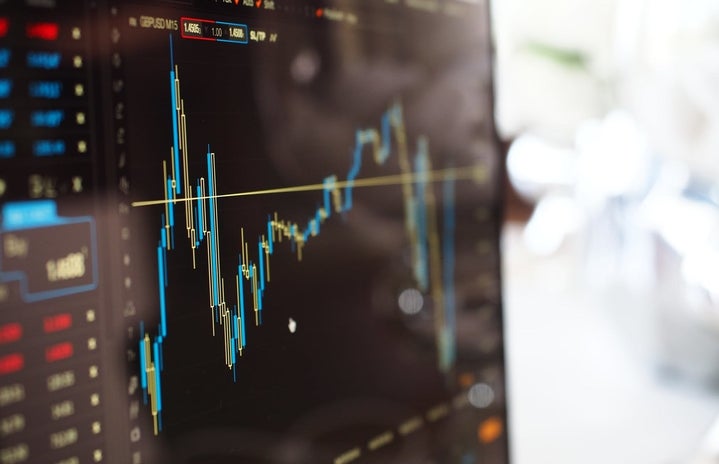For the past year, I’ve been hearing talk about a possible upcoming recession, specifically one that will supposedly happen when many of us will be fresh out of college (around 2022 to 2024). If I’m being completely honest, I didn’t entirely know what this meant or how an upcoming recession would affect me and my peers. So, I decided to delve deeper into the issue.
Essentially, a recession is when the economy starts to shrink rather than grow, meaning it’s declining. There are five factors that could be economic indicators of a recession: real gross domestic product or RGDP (a measure of the total output produced by a nation domestically within a given period of time), employment, income, manufacturing, and retail sales. If any of these five factors are decreasing, it could mean that a recession is looming. Growth of the economy can still be positive, but its growth declines at a significant rate.
Yes, all of this does sound a little intimidating. But what I really wanted to know was how a recession affects the people in our country as a whole? To start, the primary reason why recessions are so destructive is that many people lose jobs. Since the unemployment rate rises, consumers start making fewer purchases, causing businesses to go bankrupt from insufficient demand. Additionally, people who can’t afford to pay off their mortgages lose their homes. College students are also strongly affected because it becomes increasingly more difficult to find an ample job after college as companies hire fewer workers.
When students graduate in a recession, they essentially start at a lower playing field than those who enter the job market when the economy is growing. Recessions lead the former graduates to land smaller, lower-paying jobs initially. As a result, they typically catch up to their peers by changing jobs very frequently. Those who graduate during this time of economic hardship start out working at smaller firms with smaller wages. That essentially means that if we graduate in a recession, we’ll experience large earnings losses. To make matters worse, employees are affected differently, with those who directly enter the labor market affected the most rather than those with previous work experience.
In a news feature by NewsChannel5, reporters expand on the notion of millennials being held down by accumulating student loans and the job market.
The effects of the critical issue of wage and ability disparities are also called to attention when it comes to unemployment during a recession. In short, it’s easier for those who are wealthier and can afford a good higher education to land jobs than those who aren’t. Companies look to hire graduates with money rather than ones with a lower socioeconomic status.
The effects of a recession are pretty detrimental, but fortunately, the upcoming one is said to have less dire consequences. All we can do now is try to be as best prepared as we can for what’s to come in the future. Through this experience of learning about this, I’m especially thankful that Northeastern has co-op and I’m able to be a little less fearful!


